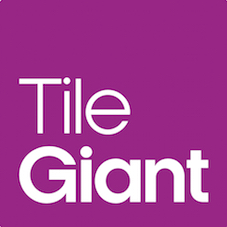UK DIY News
Green deal needs better incentives
Business and consumer groups have cast doubt on government claims that its flagship policy to insulate Britain’s homes will lead to a green revolution, saying that more incentives will be needed to help meet tough emissions targets.
The “green deal”, to be published today as part of the energy bill, is at the heart of the coalition’s drive to improve energy efficiency as it seeks to reduce the UK’s greenhouse gas emissions. Under the deal, consumers and businesses will be encouraged to make their premises more energy efficient at no upfront cost. Instead, they will pay through a charge on their energy bill that is intended to be less than the savings made by the improvements. The measures are aimed in particular at curbing heat loss from homes, which accounts for a quarter of the country’s carbon dioxide emissions.
Chris Huhne, energy secretary, promised the proposal, due to take effect in 2012, would create thousands of jobs . The Department of Energy and Climate Change says the number of people employed in supplying and fitting insulation alone could soar from the present 27,000 to 100,000 by 2015, rising to a peak of 250,000 in the next decade.
Mr Huhne said measures in the bill would ensure consumers did not fall victim to “rogue traders or receive dodgy advice”. The plans include an assurance that customers receive accredited advice on how to make their property more efficient, a green-deal quality mark and insurance-backed warranties.
But industry groups warned that further incentives would be required. “As the green deal is developed, issues such as financing and uptake must be addressed for the scheme to succeed,” said Rhian Kelly, head of climate change at the CBI, the employers’ organisation.
Ian Cheshire, chief executive of Kingfisher, which owns B&Q, said the deal “has the potential to revolutionise the home energy efficiency market” but said business needed “a broad set of incentives to achieve real change and these could include lower VAT on green products and reductions in council tax”.
Tesco said the government was moving in the same direction as consumers, given the level of interest it was getting in insulation and solar energy services. “The government is right to focus on reducing carbon emissions from the UK housing stock,” said Tesco’s Lucy Neville-Rolfe.
Paul King, chief executive of the UK Green Building Council, said: “It is critical that the finance is provided at sufficiently low interest rates to make it attractive for consumers and to ensure they can access a range of technologies.”
Householders, he added, need to be given “a clear signal they will be expected to refurbish their homes, either with fiscal incentives that link rates of stamp duty or council tax to the level of energy efficiency or [that] say people won’t be able to rent or sell their home until it meets a minimum standard”.
Source : Sylvia Pfeifer/Elizabeth Rigby - FT.com
Insight DIY always publishes the latest news stories before anyone else and we find it to be an invaluable source of customer and market information.








































